
Batalie Beach: Dominica's Hidden Gem
Batalie Beach, located on the serene west coast of Dominica, is a breathtaking destination for tourists seeking tranquility and natural beauty. Known for its pristine golden sands and crystal-clear waters, it offers visitors a perfect spot for relaxation and enjoyment. The beach is flanked by lush greenery and towering palm trees, providing a picturesque backdrop that is perfect for photography enthusiasts. Swimmers and snorkelers will be delighted by the calm and warm waters of Batalie Beach. The underwater world here is teeming with vibrant marine life, making it an ideal location for discovering the beauty beneath the waves. Nearby, you will find a variety of local eateries offering delicious Creole cuisine, where you can savor fresh seafood while enjoying the view of the ocean. For those who love adventure, Batalie Beach is also a gateway to exploring the island's rich natural landscapes. Hiking trails, waterfalls, and hot springs are just a short drive away, allowing you to experience the diverse flora and fauna of Dominica. Whether you are looking to unwind or embark on an adventure, Batalie Beach provides the perfect setting for an unforgettable tropical getaway.
Local tips in Batalie Beach
- Visit early in the morning to avoid crowds and get the best spot on the beach.
- Bring your own snorkeling gear to fully enjoy the underwater marine life.
- Try the local Creole cuisine at nearby eateries for an authentic Dominican experience.
- Don't forget to pack sunscreen and a hat, as there is limited shade on the beach.
- Explore the nearby hiking trails and waterfalls to make the most of your visit to Dominica.
Batalie Beach: Dominica's Hidden Gem
Batalie Beach, located on the serene west coast of Dominica, is a breathtaking destination for tourists seeking tranquility and natural beauty. Known for its pristine golden sands and crystal-clear waters, it offers visitors a perfect spot for relaxation and enjoyment. The beach is flanked by lush greenery and towering palm trees, providing a picturesque backdrop that is perfect for photography enthusiasts. Swimmers and snorkelers will be delighted by the calm and warm waters of Batalie Beach. The underwater world here is teeming with vibrant marine life, making it an ideal location for discovering the beauty beneath the waves. Nearby, you will find a variety of local eateries offering delicious Creole cuisine, where you can savor fresh seafood while enjoying the view of the ocean. For those who love adventure, Batalie Beach is also a gateway to exploring the island's rich natural landscapes. Hiking trails, waterfalls, and hot springs are just a short drive away, allowing you to experience the diverse flora and fauna of Dominica. Whether you are looking to unwind or embark on an adventure, Batalie Beach provides the perfect setting for an unforgettable tropical getaway.
When is the best time to go to Batalie Beach?
Iconic landmarks you can’t miss
Dominica Botanical Gardens
Explore Dominica's natural beauty and cultural heritage in the heart of Roseau at the tranquil and historic Botanical Gardens.
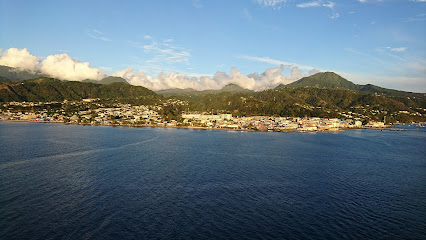
Emerald Pool
Discover Dominica's iconic Emerald Pool: a stunning waterfall and emerald-green pool nestled in the heart of a lush rainforest paradise.
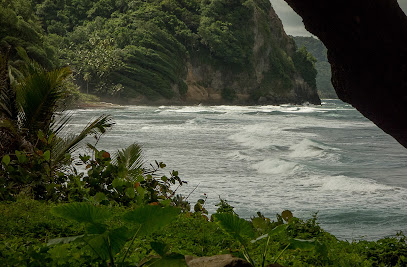
Trafalgar Falls
Experience the majestic Trafalgar Falls in Dominica, where twin waterfalls and natural hot springs create an unforgettable rainforest escape.
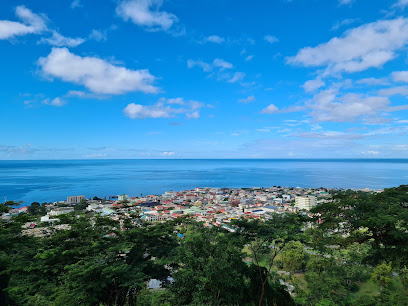
InterContinental Dominica Cabrits Resort & Spa, an IHG Hotel
Experience luxury and nature at Dominica's InterContinental Cabrits Resort, nestled in a national park with stunning Caribbean views.
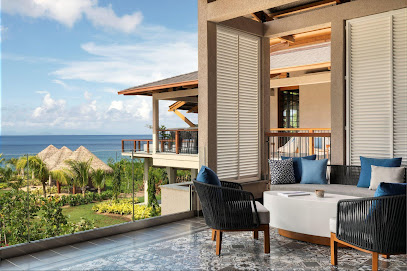
Titou Gorge
Swim through a volcanic gorge to a hidden waterfall in Dominica's Morne Trois Pitons National Park, a Caribbean adventure offering a unique blend of serenity and exhilaration.
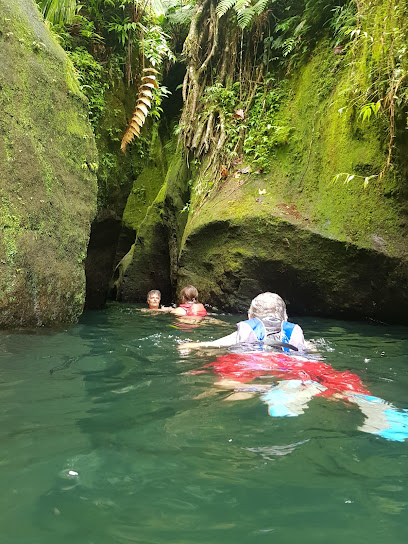
Keepin'It Real
Experience beachfront dining, water sports, and authentic Caribbean flavors at Keepin' It Real on Dominica's tranquil Toucari Beach.
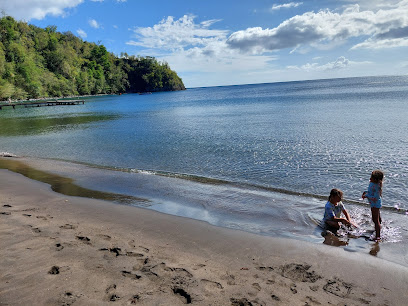
Mero beach
Discover Mero Beach in Dominica: a unique black sand paradise where volcanic beauty meets Caribbean charm. Relax, explore, and immerse yourself in the island's vibrant culture.
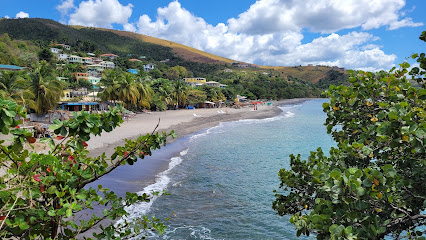
Ti Kwen Glo Cho
Experience Dominica's geothermal wonders at Ti Kwen Glo Cho: Relax in natural hot springs, explore lush gardens, and immerse yourself in tranquility.
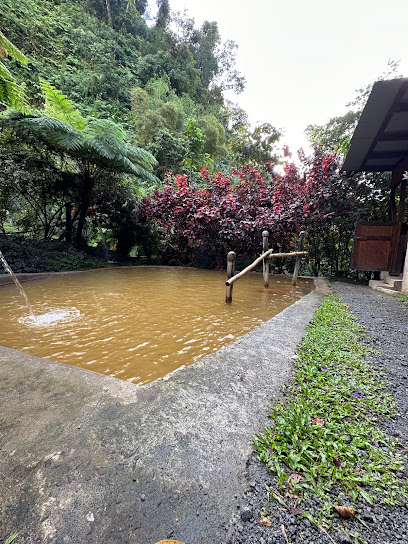
Purple Turtle Beach Club
Experience Caribbean flavors and stunning sea views at Purple Turtle Beach Club, a must-visit dining destination in Portsmouth, Dominica.
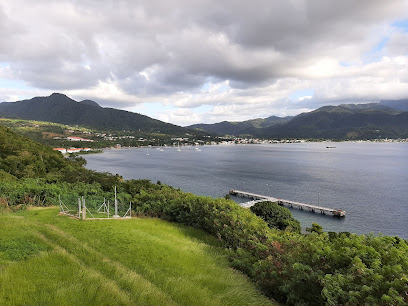
Champagne Reef, Dominica
Swim and snorkel through warm, champagne-like bubbles amidst a kaleidoscope of marine life at Dominica's unique Champagne Reef.
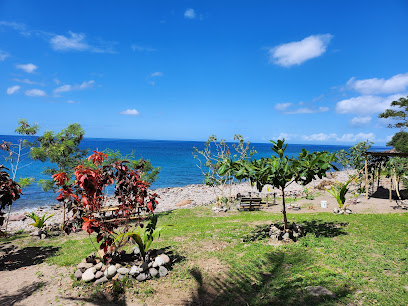
Cabrits National Park
Explore Dominica's Cabrits National Park: Where history and nature converge, offering hiking, snorkeling, and historical exploration.
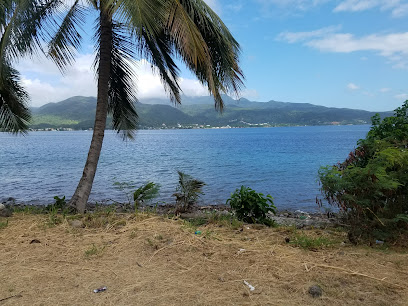
Sunset Bay Club & SeaSide Dive Resort
Discover Dominica's underwater wonders at Sunset Bay Club & SeaSide Dive Resort in Baroui, offering diving, ocean views, and a relaxing Caribbean escape.

Fort Shirley
Discover Dominica's past at Fort Shirley in Cabrits National Park: a historic fort with stunning views and a powerful story of resilience.
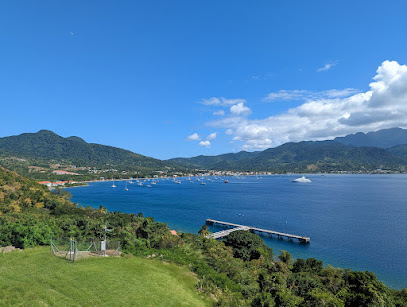
Kalinago Barana Aute
Discover Dominica's indigenous heritage at Kalinago Barana Autê: Experience traditions, crafts, and the vibrant culture of the Kalinago people.
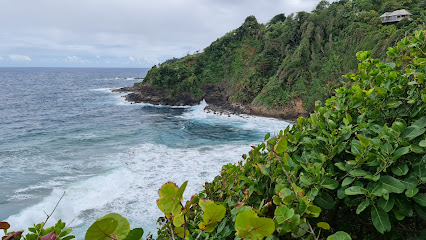
Morne Bruce Viewpoint
Discover panoramic views and colonial history at Morne Bruce in Roseau, Dominica, overlooking the Caribbean Sea and the capital city.
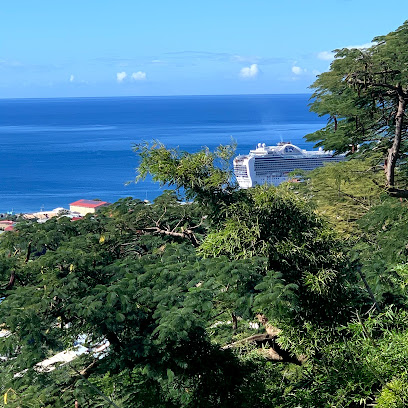
Essential places to dine
Keepin'It Real
Discover Keepin'It Real: A beachfront paradise offering delicious Caribbean cuisine and thrilling water sports adventures.
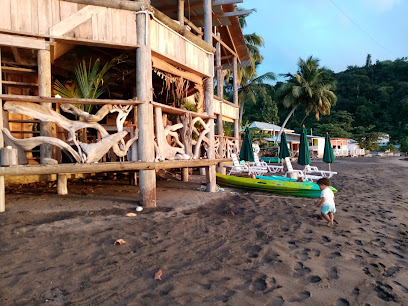
Jungle Bay Dominica
Experience luxury in harmony with nature at Jungle Bay Dominica - your perfect getaway for relaxation and adventure.
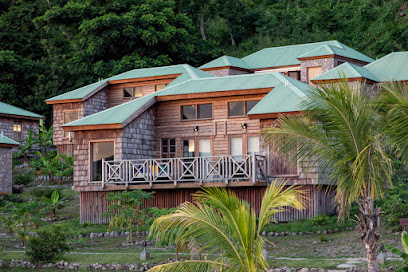
Purple Turtle Beach Club
Experience vibrant dining at Purple Turtle Beach Club in Portsmouth—where delicious cuisine meets breathtaking ocean views.
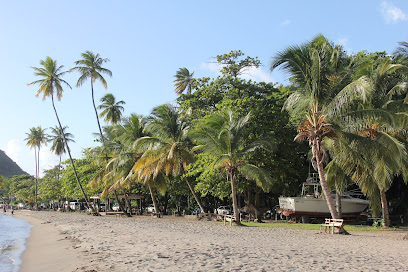
Chez Wen Cuisine
Experience fresh seafood and breathtaking ocean views at Chez Wen Cuisine in Scott's Head, Dominica.
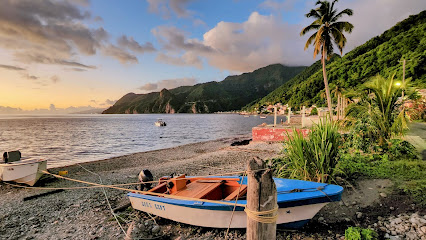
Sunset Bay Club & SeaSide Dive Resort
Experience the beauty of Baroui at Sunset Bay Club & SeaSide Dive Resort—where adventure meets relaxation by the sea.

Lacou Melrose House
Savor authentic Caribbean flavors at Lacou Melrose House in Roseau—where culinary excellence meets vibrant island culture.
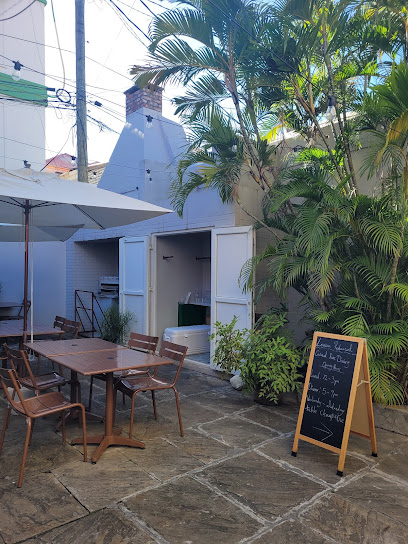
Petit Paris Restaurant & Bar
Discover exquisite Caribbean cuisine at Petit Paris Restaurant & Bar in Roseau - where every meal is a delightful experience.
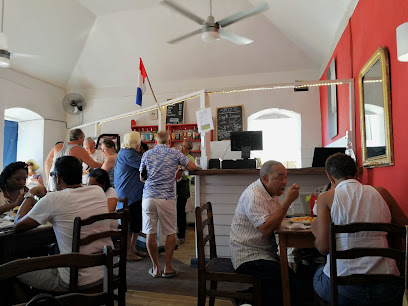
Coral Reef Bar & Restaurant
Discover a slice of paradise at Coral Reef Bar & Restaurant in Calibishie - where local flavors meet breathtaking ocean views.
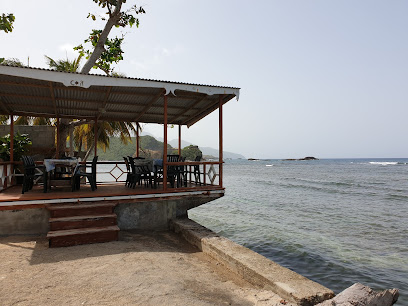
Hi Rise Beach Bar
Experience tropical dining at Hi Rise Beach Bar in Roseau - where vibrant flavors meet stunning ocean views.
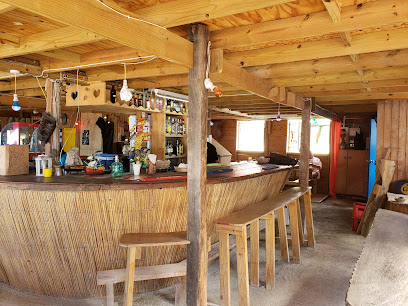
PoZ' Restaurant & Bar Calibishie
Discover the vibrant flavors of Dominica at PoZ' Restaurant & Bar in Calibishie – where local ingredients meet culinary creativity.
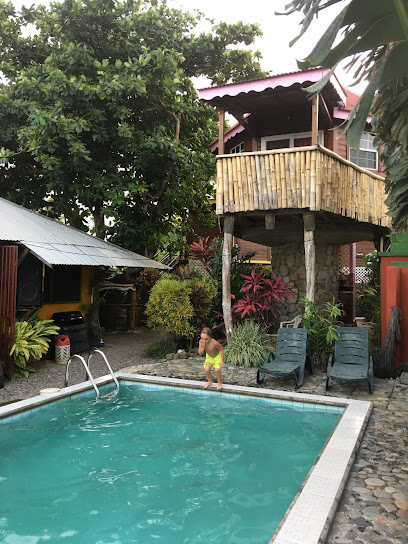
InDee's Beach Bar and Restaurant
Experience Caribbean culinary delights at InDee's Beach Bar & Restaurant while soaking up stunning views of Mero Beach.
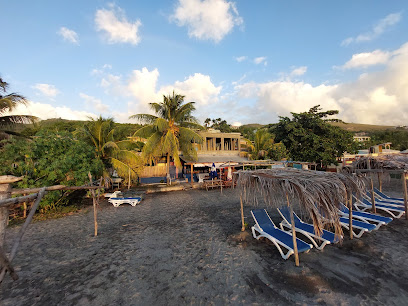
Batibou Beach
Experience pure bliss at Batibou Beach—where stunning landscapes meet vibrant marine life in Hampstead's tropical paradise.
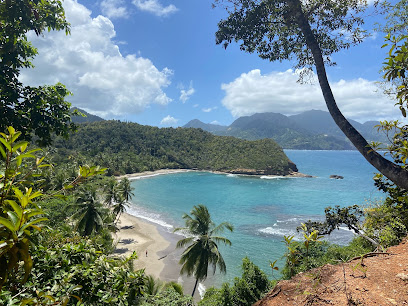
Old Stone Grill And Bar
Experience authentic Caribbean flavors at Old Stone Grill And Bar in Roseau – where every meal tells a story.
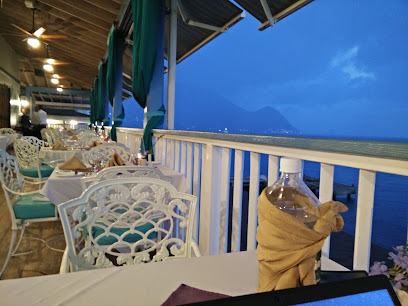
The Great Old House
Experience authentic Dominican flavors at The Great Old House in Roseau - where every meal tells a story.
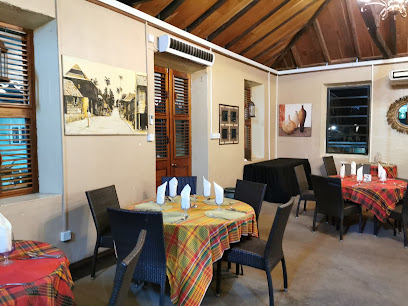
Zeb Zepis Bistro
Discover Zeb Zepis Bistro in Pont Cassé for an exceptional dining experience featuring authentic French cuisine surrounded by Dominica's natural beauty.
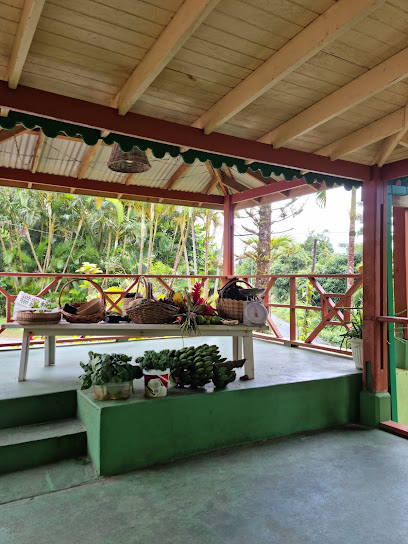
Markets, malls and hidden boutiques
Fort Young Hotel and Dive Resort
Experience the ultimate tropical escape at Fort Young Hotel and Dive Resort, where luxury meets adventure in the heart of Dominica.
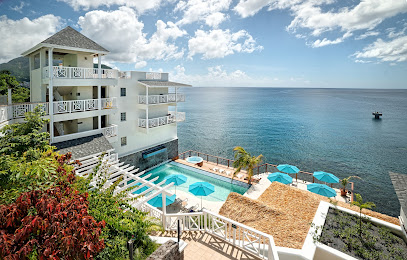
Mero beach
Discover the tranquility of Mero Beach, a picturesque Caribbean paradise ideal for relaxation, local cuisine, and unforgettable adventures.
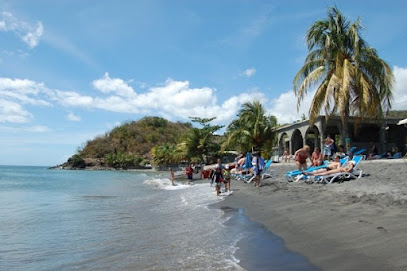
Jungle Bay Dominica
Experience luxury and nature in harmony at Jungle Bay Dominica, a boutique resort hotel perfect for relaxation and adventure.
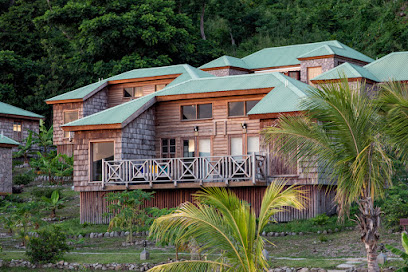
Sunset Bay Club & SeaSide Dive Resort
Experience the perfect blend of relaxation and adventure at Sunset Bay Club & SeaSide Dive Resort in beautiful Baroui, Dominica.

Kalinago Barana Aute
Experience the vibrant culture of the Kalinago people at Kalinago Barana Aute, a unique cultural center in Dominica showcasing heritage and traditions.
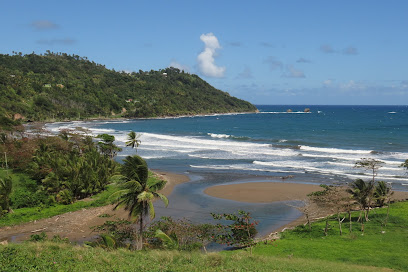
PoZ' Restaurant & Bar Calibishie
Experience the best of Caribbean dining at PoZ' Restaurant & Bar Calibishie, where local flavors meet breathtaking ocean views.
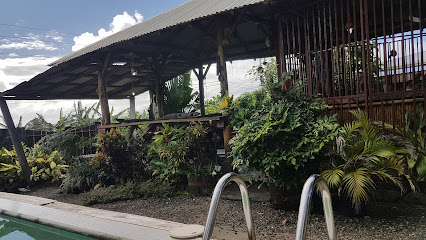
Rosalie Bay Eco Resort & Spa
Experience luxury and sustainability at Rosalie Bay Eco Resort & Spa, Dominica's serene paradise of relaxation and natural beauty.
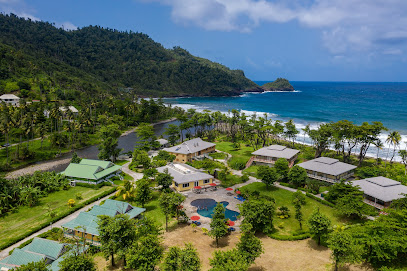
Secret Bay
Experience unparalleled luxury and breathtaking views at Secret Bay, Portsmouth's premier resort hotel, perfect for romantic escapes and unforgettable adventures.

Screw's Sulfur Spas
Discover tranquility at Screw's Sulfur Spas, where natural springs meet rejuvenating wellness treatments in the heart of Dominica.
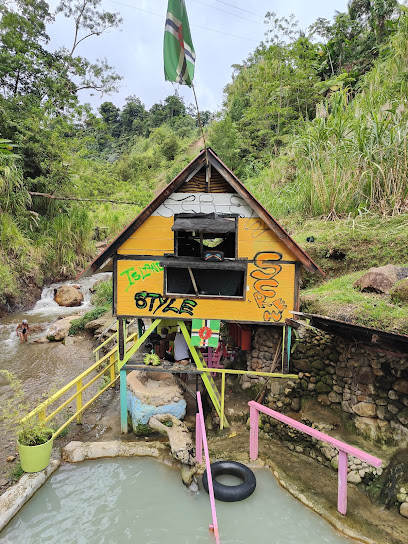
Pointe Baptiste Chocolate Factory
Experience the sweet art of chocolate making at Pointe Baptiste Chocolate Factory, where local cacao transforms into delightful treats in a stunning Caribbean setting.
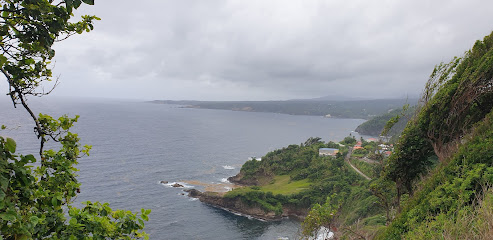
The Dominica Museum
Discover the vibrant history and culture of Dominica at The Dominica Museum in Roseau, an essential stop for every tourist.
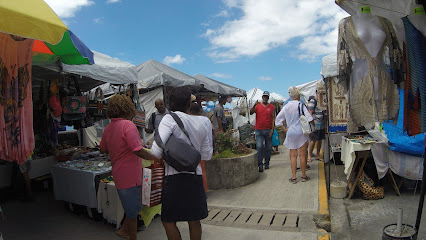
Jollys Pharmacy Ltd.
Explore health and wellness at Jollys Pharmacy Ltd. in Roseau, where expert advice and quality products meet in a vibrant setting.
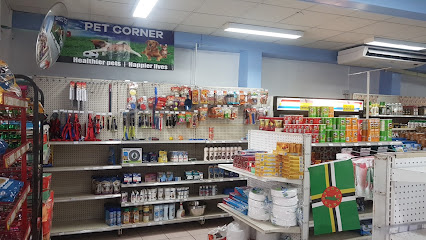
Unique seaview restaurant
Experience exquisite dining with breathtaking ocean views at this unique seaview restaurant in Calibishie, a culinary gem not to be missed.
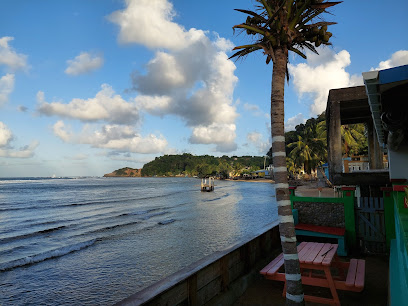
Sari-Sari Waterfall
Experience the breathtaking beauty of Sari-Sari Waterfall in La Plaine, Dominica, a hidden paradise for nature lovers and adventure seekers.
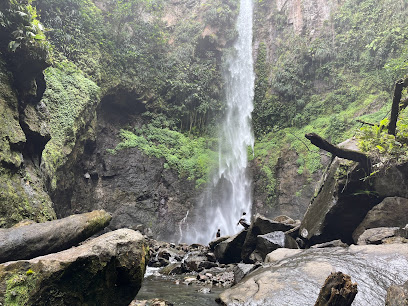
L'Escalier Tete Chien
Explore L'Escalier Tete Chien, a stunning tourist attraction in Castle Bruce, where adventure meets breathtaking natural beauty and rich cultural heritage.
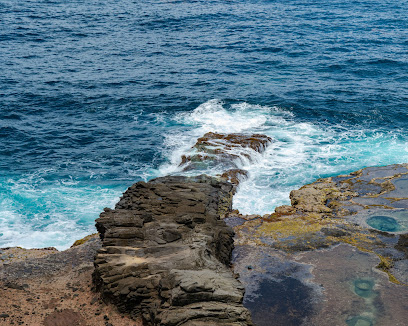
Essential bars & hidden hideouts
Purple Turtle Beach Club
Experience the vibrant flavors and stunning views at Purple Turtle Beach Club in Portsmouth, the perfect Caribbean getaway for food lovers and beachgoers.
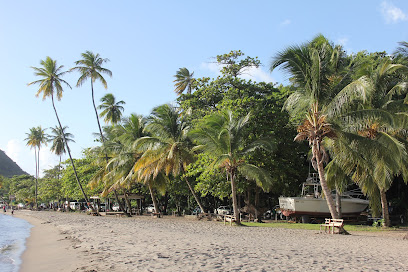
Hi Rise Beach Bar
Discover the vibrant atmosphere and stunning views at Hi Rise Beach Bar in Roseau, the perfect spot for relaxation and local flavors.
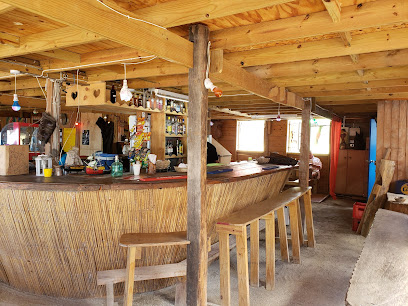
InDee's Beach Bar and Restaurant
Experience the vibrant flavors and breathtaking views of the Caribbean at InDee's Beach Bar and Restaurant on Mero Beach.
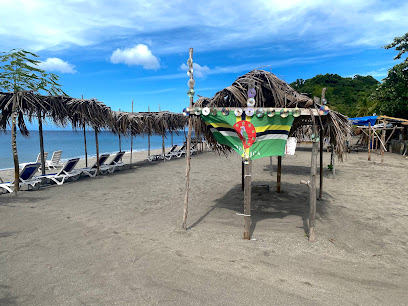
All Nations Bar
Discover the essence of Caribbean nightlife at All Nations Bar in Roseau, where local flavors meet vibrant entertainment.
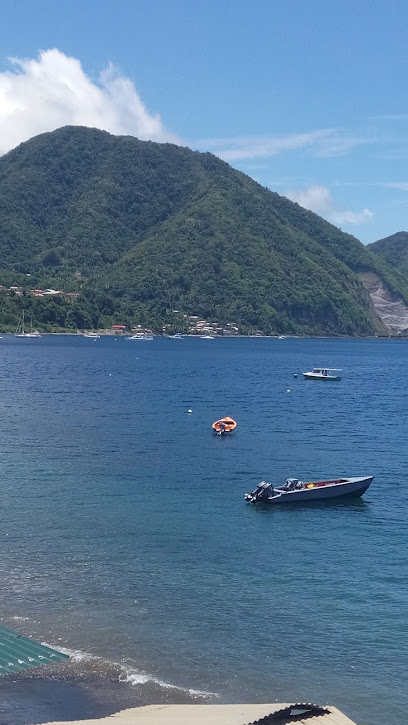
Ruins Rock Café
Discover the vibrant flavors and friendly atmosphere at Ruins Rock Café in Roseau, where every meal is a taste of Dominica's rich culture.
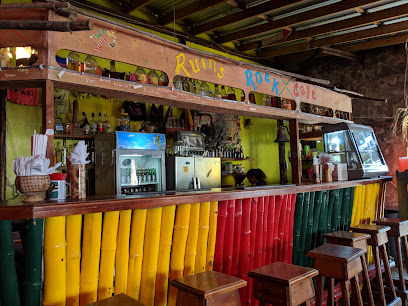
Batibou Beach
Batibou Beach: A tranquil paradise in Hampstead, Dominica, perfect for relaxation, snorkeling, and enjoying nature's beauty.
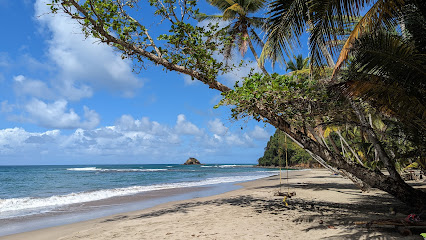
One Pot Bar and Restaurant
Experience the vibrant flavors and lively atmosphere at One Pot Bar and Restaurant in Roseau, Dominica – a true Caribbean culinary delight.
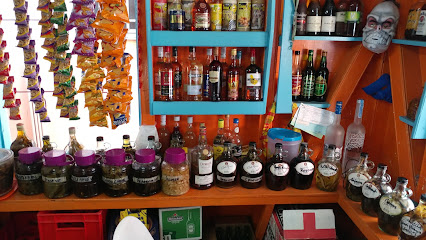
Top bar
Experience the vibrant nightlife at Top Bar in Roseau, Dominica - a perfect blend of local culture, great drinks, and unforgettable memories.
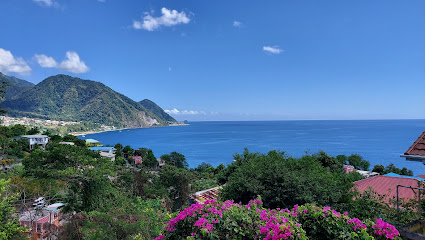
JRs Bar
Enjoy a lively blend of good music and local drinks at JRs Bar, a must-visit hotspot in Roseau, Dominica.
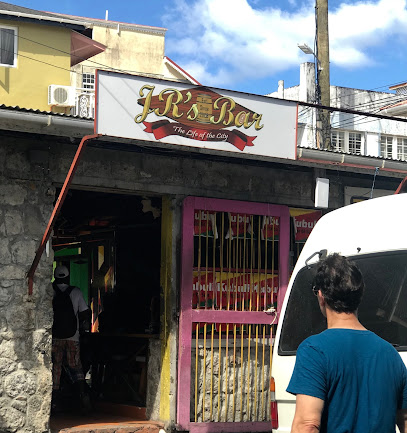
Islet View Restaurant & Bar
Experience exquisite Caribbean cuisine with stunning views at Islet View Restaurant & Bar in Castle Bruce.
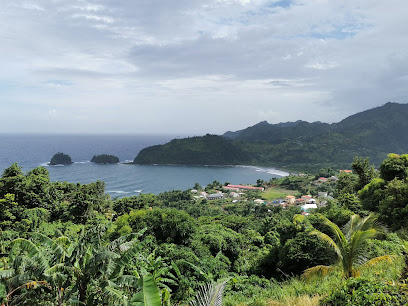
Pagua Bay Bar & Grill
Discover the vibrant flavors and stunning views at Pagua Bay Bar & Grill, a delightful American dining experience in Dominica.
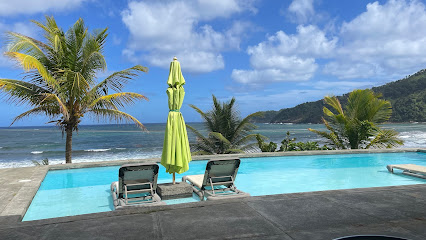
Obsessions Restaurant & Bar
Discover a vibrant dining experience with local flavors and scenic river views at Obsessions Restaurant & Bar in Roseau.
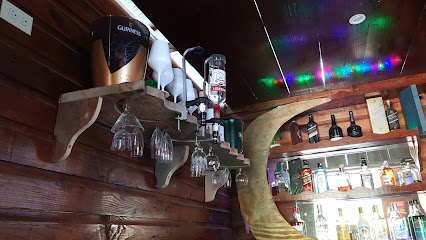
The Nook Café & Wine Bar
Experience the vibrant flavors of Dominica at The Nook Café & Wine Bar, where delicious food and fine wines come together in a cozy setting.
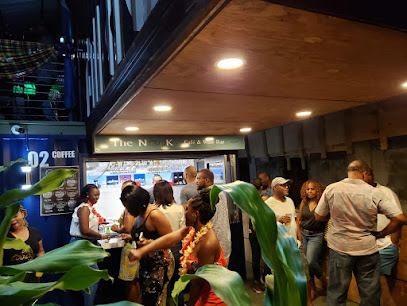
The Velvet Lounge, Café-Bar
Experience the vibrant atmosphere of The Velvet Lounge, Café-Bar in Roseau, where great drinks and good company await.
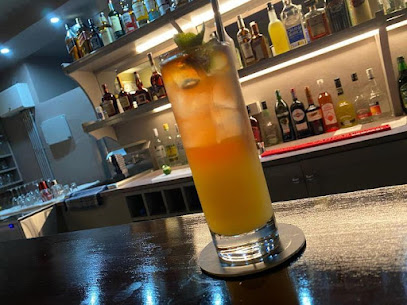
Local Phrases about Batalie Beach
-
- HelloBonjou
[bon-joo] - GoodbyeOrevwa
[oh-rev-wah] - YesWi
[wee] - NoNon
[non] - Please/You're welcomeTanpri
[tan-pree] - Thank youMèsi
[meh-see] - Excuse me/SorryEskize mwen
[es-kee-zay mwen] - How are you?Kijan ou ye?
[key-jan oo yay] - Fine. And you?Byen. E ou?
[bee-yen. eh oo] - Do you speak English?Eske ou pale angle?
[es-kay oo pah-lay ang-glay] - I don't understandMwen pa konprann
[mwen pa kohn-pran]
- HelloBonjou
-
- I'd like to see the menu, pleaseMwen ta renmen wè meni a, tanpri
[mwen tah ren-men way meh-nee ah, tan-pree] - I don't eat meatMwen pa manje vyann
[mwen pa manj vyan] - Cheers!Santé!
[san-tay] - I would like to pay, pleaseMwen ta renmen peye, tanpri
[mwen tah ren-men pay-yay, tan-pree]
- I'd like to see the menu, pleaseMwen ta renmen wè meni a, tanpri
-
- Help!Ed mwen!
[ayd mwen] - Go away!Alé!
[ah-lay] - Call the Police!Rele lapolis!
[ray-lay lah-po-leece] - Call a doctor!Rele yon doktè!
[ray-lay yohn dok-tay] - I'm lostMwen pedi
[mwen peh-dee] - I'm illMwen malad
[mwen mah-lahd]
- Help!Ed mwen!
-
- I'd like to buy...Mwen ta renmen achte...
[mwen tah ren-men ach-tay] - I'm just lookingMwen jis gade
[mwen zhee gah-day] - How much is it?Konbyen sa koute?
[kon-byen sah koot] - That's too expensiveSa twò chè
[sah twah sheh] - Can you lower the price?Eske ou ka ba pri a?
[es-kay oo ka bah pree ah]
- I'd like to buy...Mwen ta renmen achte...
-
- What time is it?Ki lè li ye?
[key lay lee yay] - It's one o'clockLi sé yonn lè
[lee say yohn lay] - Half past (10)Demi (disè)
[deh-mee dee-say] - MorningMaten
[mah-ten] - AfternoonApremidi
[ah-pray-mee-dee] - EveningSwa
[swah] - YesterdayYè
[yay] - TodayJodi a
[joh-dee ah] - TomorrowDemen
[deh-men] - 1Yonn
[yohn] - 2De
[day] - 3Twaz
[twahz] - 4Kat
[kaht] - 5Senk
[sank] - 6Sis
[sees] - 7Sèt
[set] - 8Uit
[weet] - 9Nèf
[nef] - 10Disè
[dee-say]
- What time is it?Ki lè li ye?
-
- Where's a/the...?Ki kote yon...?
[key koh-tay yohn] - What's the address?Kisa adres la ye?
[kee-sah ad-res lah yay] - Can you show me (on the map)?Eske ou ka montre mwen (sou kat la)?
[es-kay oo ka mon-tray mwen (soo kaht lah)] - When's the next (bus)?Ki lè pwochen (bis la)?
[key lay pwosh-en (bees lah)] - A ticket (to ....)Yon tikè (pou ....)
[yohn tee-kay (poo)]
- Where's a/the...?Ki kote yon...?
History of Batalie Beach
-
Long before European settlers arrived, the area around Batalie Beach was inhabited by the Kalinago people, also known as the Caribs. These indigenous people lived in harmony with the land, relying on fishing, agriculture, and the abundant natural resources of the area. The Kalinago were skilled navigators and builders of dugout canoes, which they used to travel between the islands of the Caribbean.
-
In the late 15th century, European explorers began to arrive in the Caribbean, and Dominica was no exception. Christopher Columbus is said to have sighted the island on his second voyage in 1493. Over the following centuries, Dominica changed hands between the French and British multiple times. The area around Batalie Beach saw numerous skirmishes and battles as these colonial powers vied for control of the island.
-
During the 18th and early 19th centuries, Dominica became part of the transatlantic slave trade. The fertile lands around Batalie Beach were used for sugarcane plantations, worked by enslaved Africans. This dark period in history left a lasting impact on the island's culture and demographics. The end of slavery in the British Empire in 1834 brought significant changes, but the legacy of this era is still evident in the cultural fabric of the area.
-
Escaped slaves, known as Maroons, formed communities in the rugged interior of Dominica, far from the coastal plantations. These Maroon communities played a crucial role in resisting colonial oppression and maintaining African cultural traditions. While not directly on Batalie Beach, the nearby areas were influenced by the presence of these resilient groups, who often traded and interacted with the coastal inhabitants.
-
Dominica gained independence from Britain on November 3, 1978. Since then, the island has worked to preserve its unique history and culture while developing its tourism industry. Batalie Beach has become a popular destination for visitors seeking to experience the natural beauty and rich heritage of Dominica. Efforts to protect the environment and promote sustainable tourism have helped maintain the area's pristine condition.
-
Today, Batalie Beach is not just a place of historical significance but also a hub of cultural activity. The island of Dominica is known for its vibrant festivals, such as the World Creole Music Festival and Carnival. These events celebrate the island's diverse heritage, blending African, European, and indigenous influences. Visitors to Batalie Beach can often witness traditional dance, music, and cuisine that reflect the rich cultural tapestry of Dominica.
Batalie Beach Essentials
-
Batalie Beach is located on the northwest coast of Dominica. The nearest international airport is Douglas-Charles Airport (DOM), approximately 45 minutes by car. Alternatively, you can arrive at the Canefield Airport (DCF) for domestic flights. From either airport, you can take a taxi or rent a car to reach Batalie Beach. Public buses are also available but may require transfers and longer travel times. For those arriving by sea, the nearest port is in Roseau, Dominica’s capital, about an hour’s drive from Batalie Beach.
-
Transportation options around Batalie Beach include taxis, car rentals, and public buses. Taxis are a convenient but more expensive option; always agree on the fare before starting the trip. Car rentals offer flexibility for exploring the island at your own pace, but remember to drive on the left side of the road. Public buses are an economical option, but they can be crowded and have irregular schedules. Walking and cycling are also viable options for short distances.
-
The official currency in Dominica is the Eastern Caribbean Dollar (XCD). US dollars are also widely accepted, but it’s advisable to carry local currency for smaller establishments. Credit cards are accepted in most hotels, restaurants, and larger shops, but it’s wise to have cash on hand for smaller purchases and in more remote areas. ATMs are available in nearby towns, but it’s recommended to withdraw sufficient cash before heading to Batalie Beach.
-
Batalie Beach is generally a safe destination, but it is always important to take standard precautions. Avoid isolated areas after dark and keep an eye on your belongings, especially in crowded places. While Dominica has a low crime rate, petty theft can occur. Be cautious in the capital, Roseau, where pickpocketing can be more common. Always lock your car and do not leave valuables unattended on the beach.
-
In case of an emergency, dial 999 for immediate assistance. The nearest medical facility is the Portsmouth Hospital, about 20 minutes by car from Batalie Beach. It is recommended to have travel insurance that covers medical emergencies. For minor health issues, there are pharmacies in the nearby towns where you can purchase over-the-counter medications. The local police station is also located in Portsmouth.
-
Fashion: Do wear light, breathable clothing, but avoid overly revealing attire, especially in town. Religion: Do respect local customs and traditions. Dominica is predominantly Christian, so be mindful when visiting churches. Public Transport: Do be polite and greet the driver when boarding. Don’t eat or drink on public transport. Greetings: Do greet people with a friendly 'hello' or 'good morning/afternoon.' A handshake is also common. Eating & Drinking: Do try local dishes and fruits. When invited to a meal, it’s polite to accept and show appreciation. Don’t refuse food or drink offerings, as it can be seen as impolite.
-
To experience Batalie Beach like a local, visit nearby markets in Portsmouth where you can buy fresh produce and local crafts. Engage with the locals, who are often friendly and willing to share stories about the island's history and culture. Don’t miss the opportunity to explore the natural beauty of the area, including the nearby Syndicate Nature Trail and the Indian River. For a unique experience, consider hiring a local guide to show you hidden gems and provide insights into Dominican life.
Trending Landmarks in Batalie Beach
-
Dominica Botanical Gardens
-
Emerald Pool
-
Trafalgar Falls
-
InterContinental Dominica Cabrits Resort & Spa, an IHG Hotel
-
Titou Gorge
-
Keepin'It Real
-
Mero beach
-
Ti Kwen Glo Cho
-
Purple Turtle Beach Club
-
Champagne Reef, Dominica
-
Cabrits National Park
-
Sunset Bay Club & SeaSide Dive Resort
-
Fort Shirley
-
Kalinago Barana Aute
-
Morne Bruce Viewpoint
Nearby Cities to Batalie Beach
-
Things To Do in Roseau
-
Things To Do in Castle Bruce
-
Things To Do in La Plaine
-
Things To Do in Rodney Bay
-
Things To Do in Gros Islet
-
Things To Do in Castries
-
Things To Do in Dauphin
-
Things To Do in Marigot Bay
-
Things To Do in Anse la Raye
-
Things To Do in Woodlands
-
Things To Do in Canaries
-
Things To Do in Soufrière
-
Things To Do in English Harbour
-
Things To Do in Malgretoute
-
Things To Do in Praslin






